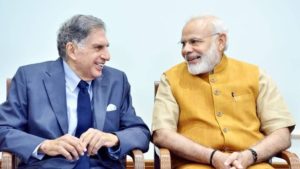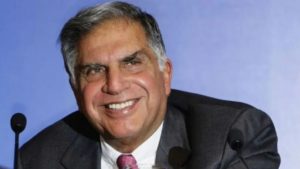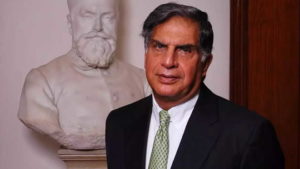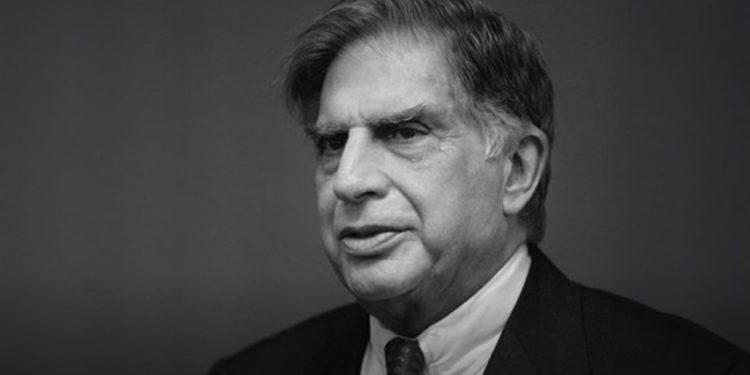At 86, Ratan Naval Tata, the esteemed former chairman of the Tata Group, died from this life on Wednesday. Tata passed away after being brought in serious condition to Mumbai’s Breach Candy Hospital. Millions of Indians are mourning the loss of one of the nation’s most recognizable leaders, and his demise signifies the end of an era of his contributions to the business sector in India.
He has done incredibly meaningful for his country and he is known as one of the prestigious people of the country. President Droupadi Murmu and Prime Minister Narendra Modi led the country in honoring the legacy of industrial legend Ratan Tata after his death. In his statement, Murmu highlighted his significant achievements for the country, while Prime Minister Modi referred to him as a “business leader” of exceptional distinction and a “compassionate soul”.

Ratan Naval Tata was a visionary leader and philanthropist who helped to establish modern India. His role is immense and his contributions are limitless. Ratan Tata’s death is the end of an era for a man who led the company, which is well-known for its “salt-to-software” line, into global prominence with brave attainments like Corus Steel and Jaguar Land Rover.
Nonetheless, Tata’s influence went well beyond business due to his modesty, generosity, and commitment to social concerns. Generations to follow will continue to be inspired by his legacy, which is woven with principles of honesty and accountability.
When the Tata Group announced Tata’s passing, it signaled the end of a period of significant change for the company. Moreover, it greatly impacted the country, leaving people mourning over the big loss. He had been battling age-related problems while in intensive care at a hospital in Mumbai.
How did Ratan Naval Tata contribute to the Indian prosperity?

Ratan Tata, who is renowned for his innovative leadership, led the Tata Group for more than 20 years, propelling the business to the international arena through significant acquisitions including the luxury automakers Jaguar and Land Rover, the British tea giant Tetley, and the Anglo-Dutch steelmaker Corus. These agreements contributed to the Tata Group’s rise to prominence as a global force in sectors like IT, steel, and automobiles.
In 1991, while India was opening its economy to the world, Ratan Tata succeeded his uncle J.R.D. Tata as group leader. Ratan Naval Tata supervised the implementation of important reforms, such as restructuring the group’s management structure and establishing retirement ages for senior executives. Additionally, he was instrumental in the establishment of Tata Teleservices and the IPO of Tata Consultancy Services (TCS), which became one of the group’s most profitable activities.
Furthermore, He made significant contributions to India’s industrial development. To make car ownership more accessible, Ratan Tata led initiatives like the Indica, the first automobile to be designed and built in India, and the Nano, a low-cost car. The Nano demonstrated Tata’s dedication to innovation and enhancing the lives of common Indians, despite its failure due to safety issues and marketing blunders.
Nonetheless, Ratan Naval Tata was well-known for his modesty, quiet manner, and charitable activities despite his commercial success. His lifetime commitment to giving back to society is proved by charitable trusts owning around two-thirds of Tata Sons, the group’s holding company.
Apart from his business legacy, Ratan Naval Tata was a well-known investor in Indian startups, lending backing to firms like Urban Company, Ola Electric, and Paytm. In 2008, he received the Padma Vibhushan, one of India’s highest civilian distinctions, among many other tributes.

Nonetheless, the passing of Tata has driven compassions from all across the world.
Mumbai commemorated a day of mourning Wednesday, as large crowds came to pay their respects to the industrialist. A marching band accompanied the mournful parade in which Tata’s casket, draped in the Indian national flag, was led with full state honors. On Thursday afternoon, the final ceremonies of Ratan Naval Tata were held at the Parsi cremation site in Worli.
A Life of Leadership and Philanthropy Under his leadership, the Tata Group became one of the largest conglomerates in the world, with a diverse portfolio spanning industries from software to automobiles. He assumed the role of chairman in 1991 and led the company through a period of rapid economic change while expanding its global reach.
Besides his commercial achievements, Tata was well known for his charitable activities, prioritizing rural development, healthcare, and education. According to the Tata Groups, his humanitarian efforts have “touched the lives of millions” and will continue to help coming generations.













